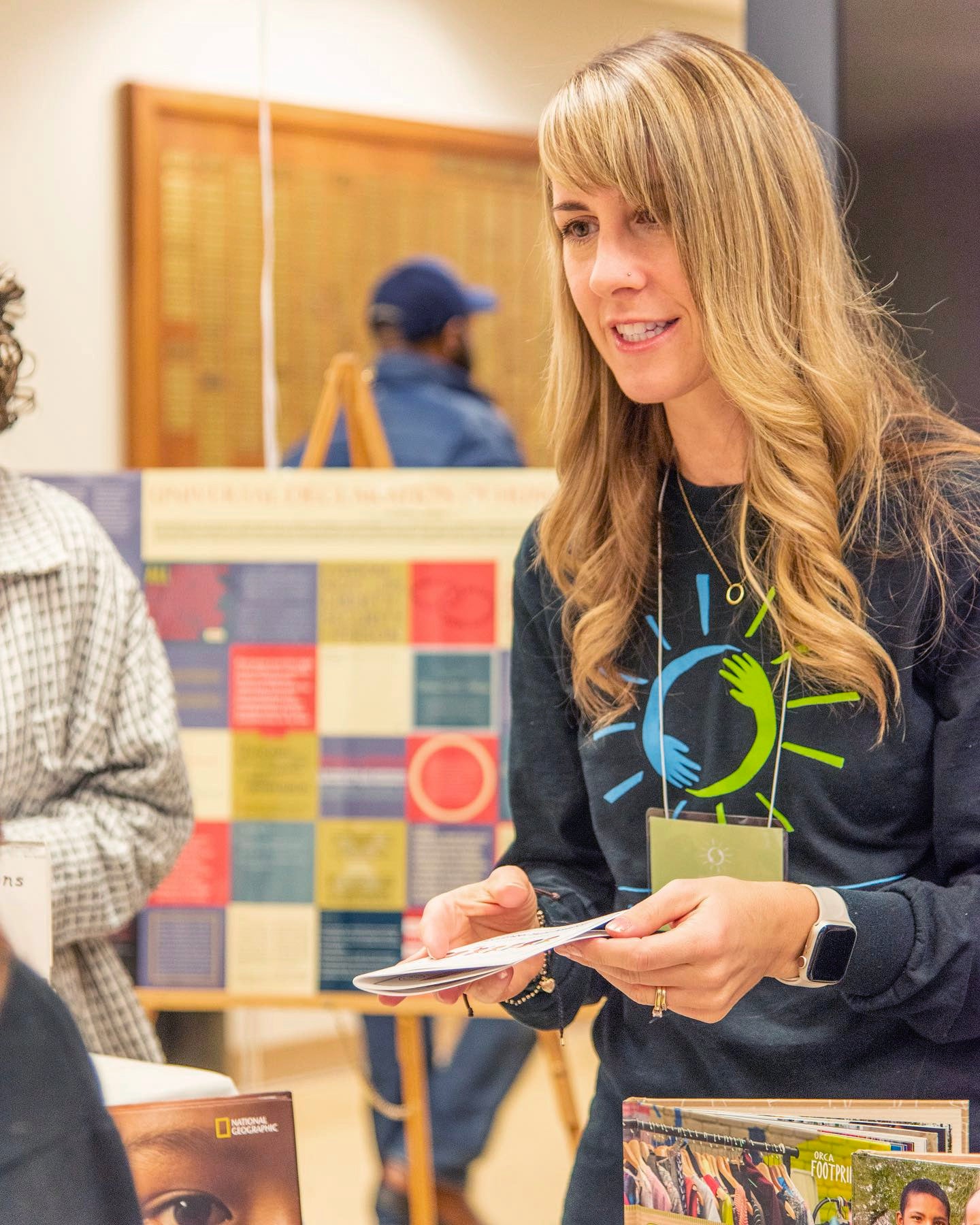By Marian Pontz
"When a vet has issues, all the people who know them will have issues.” –Scott Hower
For more than ten years, Scott Hower has been meeting with and writing alongside veterans. Using the power of the written word – specifically, poetry – Hower is helping our vets process their experiences and move forward. He didn't mean to help other vets by writing, but the universe kept pushing him in that direction, Hower shares.

Hower explains that he once attended a conference in Washington, D.C. as a guest of his wife. Once he had his fill of the topics presented, Hower decided to visit the Vietnam War Memorial (or “the wall,” as he refers to it).
Hower himself spent eleven years in the Air Force, serving on numerous bases – including a base in Thailand where, as he hesitantly explains, he “built the bombs and rockets used in the Vietnam War.” Visiting the Vietnam War Memorial nearly twenty years after his service, he did not expect to feel the overwhelming grief that he experienced. Until that moment, the depth of his sorrow had gone unrecognized. It had been masked as anger, he shares, “anger at everyone, and it was always someone else’s fault.”
When he returned home from that trip to Washington, D.C., Hower felt compelled to write about his military experience. One hundred poems later, he had found something new to help him cope with his grief.
However, his poetry was not only focused on his military service. He began writing love poems, bawdy limericks, and poems about nature and the meaning of life. He kept index cards in his wallet so that he could make a note whenever an idea came to him. His writing practice led him down his path toward recovery. And yet, this was his path – he never imagined sharing it with anybody else.
As a carpenter who renovates Victorian-era homes, Hower often finds himself purchasing building supplies. Early one morning, a young man approached Hower and asked him if he was a veteran, too. When Hower said yes, the young man – who had recently returned from Iraq – asked if they could just sit and talk. “As we sat in my truck, I had no real wisdom, but I gave him the best old guy advice I could,” Hower says.
Just a few months later, a different, younger vet approached Hower once again, asking the same question and needing the same advice. “I don't know why they approached me,” he says.
“My wife says I carry myself like a vet.” He might not know why they approached him on those days – but Hower did realize from these interactions that, though he didn't know how he would figure out a way to help his fellow veterans.
From this need, WriteFace – a play on words that Hower says every veteran knows (that is, right face) – was born. In 2014, the organization received its 501(c)(3) status and its signature ten-week writing class was established. As their participation numbers grew, so did their need for a co-leader. That’s where Audra King enters our story.
King is a safety consultant and relaxation coach, and former Army counterintelligence. King shares that she has always been a writer. “When I was a teenager, I wrote about my teenage angst in poetry,” she says. “In the military, there is something called ‘hurry up and wait.’ You will see everyone with a journal where, during downtime, folks will be drawing or writing. A lot of vets are creative and deep thinkers.”
Both Hower and King share that their participating veterans – some of whom come to Hower’s Conestoga, PA-based home for their ten weeks of lessons, while others join via Zoom – are all busy balancing numerous obligations. Still, during their class time and when they meet with guest speakers (including musicians, published writers, editors, and more), the WriteFace participants are focused solely on their creative selves. They are encouraged to use these classes and the writing medium to process that which has not been processed. This class, King explains, provides a healthy avenue for reintegration and camaraderie. As Hower adds, “There is no unity without U and I.”

WriteFace has helped more than 800 veterans over the course of ten years. And yet, there are more than 34,000 veterans living in Lancaster County alone. “We are barely scratching the surface,” King explains. “We would like to become part of the two-week process as veterans are being released from the military.” At the end of their service, Hower and King explain, veterans go through a process where form after form and checklist after checklist are all processed during those final two weeks. “We would like to become part of that process so the vets have a group they can immediately connect with,” King says. “Not find us as they struggle, but from the beginning, know we are here to allow space to process and use their creativity.”
Every November, WriteFace participants share their writings and artwork during an exhibit at The Ware Center in Lancaster City. This event is designed to bring awareness to the incredible work being done by this organization.
Looking ahead, Hower and King have big dreams for WriteFace. Along with their goal of connecting with veterans early on, WriteFace would also like to have their own space. Currently, Hower’s home serves their headquarters, but they would both like to find a spot that all participants – past and present – can call their own. They also hope to promote their work on social media. All of these goals are set with the intention of reaching every veteran and their family members who need a safe space to be creative and to share.
For more information or to reach the WriteFace team, visit writeface.org. You can also meet them at the Gifts That Give Hope Alternative Gift Fair on Sunday, December 1, 2024, at the Lancaster Farm & Home Center.


